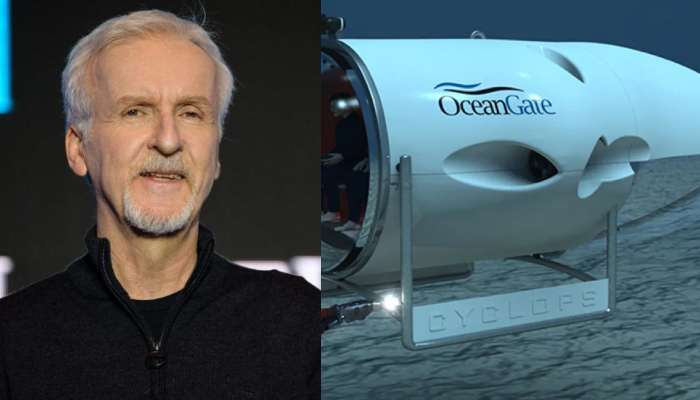James Cameron claims he was told of the submarine implosion on Monday
James Cameron feels sorry for the families of people who were in the OceanGate submarine
After learning that an implosion had been heard within 24 hours of the Titanic submarine going missing, James Cameron "watched over the ensuing days this whole sort of everybody-running-around-with-their-hair-on-fire search, knowing full well that it was futile."
The director also co-related it to where did Titanic sink. About 12,500 feet (3,800 meters) on the ocean floor and the deep sea expert, who has conducted over 30 dives to the Titanic ruins, reported that he was informed on Monday that underwater acoustic instruments had picked up the sound of a potential implosion of the sub.
"I tracked down some intel that was probably of a military origin, although it could have been research - because there are hydrophones all over the Atlantic - and got confirmation that there was loud noise consistent with an implosion," he told CNN.
He claimed that it did not surprise him because he believed that Titan, the sub operated by OceanGate Expedition, was fundamentally inappropriate.
Titanic director James Cameron claimed that the ceramic sub he used for his dives was more resistant to the tremendous pressure found underwater.
Cameron admitted to Anderson Cooper on Thursday night that the result had left him feeling "kind of heart sick."
But he said that he had had more time than others to accept it.
"I've been living with it for a few days now, as have some of my colleagues in the deep submergence community," he said.
"I was out on a ship myself when this happened on Sunday."
"The first I heard of it was on Monday morning. I immediately got on my network - because it's a very small community in the deep submergence group - and found out some information with about a half hour that they had lost comms and they had lost tracking simultaneously."
"The only scenario that I could come up with in my mind that could account for that was an implosion. A shockwave event so powerful it actually took out a secondary system that has its own pressure vessel and its own battery power supply, which is the transponder that the ship uses to track where the sub is."
The deep sea industry was Cameron's first contact, and the 68-year-old claimed he quickly realised that there was little doubt there had been a catastrophic implosion.
"I let all of my inner circle of people know that we had lost our comrades, and I encouraged everyone to raise a glass in their honor on Monday."
"Then I watched over the ensuing days this whole sort of everybody-running-around-with-their-hair-on-fire search, knowing full well that it was futile, hoping against hope that I was wrong but knowing in my bones that I wasn't."
The U.S. Coast Guard and OceanGate announced on Thursday that all five aboard had died, and debris from the imploded sub had been discovered on the ocean floor. Cameron stated this "definitely wasn't a surprise."
The families had to "go through these false hopes that kept getting dangled as it played out," he added, adding that he felt horrible for them.
And he added that he believed the OceanGate team to be careless.
